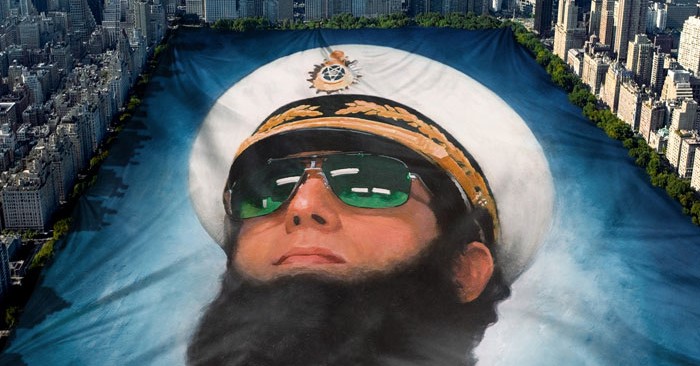The rule of law is a political philosophy in which all citizens and institutions within the state are accountable to the same laws, including legislators and leaders. This concept was defined by Encyclopedia Britannica as “a mechanism, process, institution, practice, or norm that upholds the equality of all citizens before the law, ensures a non-arbitrary form of government, and generally prevents the arbitrary use of power.” The rule of law in all countries where it exists is based on the same four elements:
- Responsibility;
- Just laws;
- Transparency;
- Equality before the law.
Although these four elements are the basis of today’s constitutions and laws, in some countries there is a lack of participation of some of them. As power in modern states is divided into legislative, executive and judicial, so the rule of law can be corrupted from one of these three branches of government. The reasons are different for each case, but the most common cause is the desire for lifelong power and/or absolute power in one of the three branches of government:
- legislative, which is generally responsible for passing laws, managing the state budget, and, depending on the country, controlling the actions of the executive and judicial authorities;
- executive, which is responsible for managing current state policy and ensuring the implementation of laws passed by the legislature; and
- judicial, whose role is to control the application of laws and sanction their non-compliance.
The desire for superiority is not an abnormal phenomenon – there are many places where even today the rule of law is not respected or does not exist. One of the countries where laws exist, but are not followed, is Venezuela. Venezuela has been in this situation for some time and is currently last on the list of the World Justice Project, which deals with the rule of law and its participation in all countries of the world, where it has an index of 0.27 on a scale of 0 to 1, and every year it becomes smaller and smaller. The reason for this state of affairs is the dictatorship established by Nicolas Maduro, who has been the president of Venezuela since 2013. Under Maduro’s rule, the rule of law has collapsed, and various international organizations have tried to prevent this from happening, but without any success. Maduro collapsed the rule of law in Venezuela because he realized that as long as it still existed in Venezuela, he would not be able to run the country the way he wanted. As of 2019, Venezuela is in a crisis better known as the “Venezuelan Presidential Crisis” – a political crisis concerning the leadership and the legitimate president of Venezuela. It began on 10. January 2019. but negotiations are still ongoing, with the nation and the world divided in support of Nicolas Maduro or Juan Guaido. The process and results of the May 20, 2018 presidential election were widely contested. The opposition-majority National Assembly declared Maduro a “usurper” of the presidency on the day of his second inauguration and unveiled a plan to install its president, Guaido, as the country’s hereditary acting president under Article 233 of the Venezuelan Constitution.
Apart from places where the rule of law is not respected, there are places where the rule of law is not practiced at all, such as Slab City. Slab City is a place in the USA where the citizens are mostly so-called “snowbirds”[1] and people who want to live isolated from society, the rule of law does not exist, and justify its lack by saying that they are “the last free place in the USA”, which I don’t completely agree with. They are free in the sense that there is no government authority ruling over them, but they live in a disorderly system without laws and the rule of law. This is not the definition of freedom in the 21st century, as the citizens of Slab City believe, but rather anarchy where there is no rule of law. Therefore, it is very important to distinguish between the concepts of anarchy and freedom, and that freedom exists and is safer if there is a rule of law.
Apart from such places, there are places where the rule of law is not respected because people in power want to be superior to ordinary citizens, which is still a very common case in the world. People in power think that they are better, smarter, and superior to someone who does not belong to their rank, and they think that they deserve more rights and privileges, fewer obligations and that they cannot possibly be equal to a standard citizen. The rule of law disappears at that moment, and the emergence of dictatorships, tyranny, and similar systems is the pure opposite of the philosophy guided by the rule of law. The rule of law as a concept implies equality among all citizens, all are equal before the law. If there is no such thing, the rule of law is also in danger.
Unfortunately, this is not strange. The human race is by nature self-centered, but some individuals are more selfish than others. This is just one of the reasons why people in power in some countries think they are above the citizens. They are well aware that the average citizen does not live up to high standards, moreover, some barely make ends meet. The government exploits its position of power by making bad decisions for the citizens: insufficient salaries and pensions, poorly allocated budget, insufficient drinking water, inflation, etc. Over time, the government becomes even greedier[2] because it is aware of what it can afford now, while the rest live in poverty and try to lead a normal life with insufficient salaries, overpriced bills, groceries, taxes, etc. The government paints a picture where the ordinary citizen believes that the rule of law actually exists and rules the country according to its principles, while it is corrupt, like the judiciary, everything is controlled by one man or a group of people, which is a clear definition of dictatorship.
The rule of law is a good concept, because according to it, everyone is equal before the court, regardless of their position in society. Countries, where the rule of law is respected, are countries where citizens are much happier – for example, Denmark, Germany, Norway, the United Kingdom, Canada, etc. Also, in countries where the rule of law is respected, there is much less corruption. In countries where the rule of law, isn’t respected, people in power may be more corrupt and greedy – their thinking and perspective on how to run the country differs.
The rule of law as a political philosophy is the closest to a utopia for people who are in favor of equality in most aspects of everyday life, although in practice it will never work properly everywhere. The reason for this is not only egocentrism, or the wrong people coming to power – the region in which a certain country is located also plays an important role, as well as its history. For example, in former African and South American colonies – many of them the people are powerless and the government is corrupt. It is in the interest of political leaders to keep these states in that state because the introduction of the rule of law would be unfavorable for them. For example, they could be held accountable for crimes and violations of the law they have committed and/or be removed from power.
The rule of law is a complex concept that as an idea is very interesting and sounds like a utopia to many, but in practice, it is very complicated and unfeasible in some cases due to various factors analyzed in this text. However, the hope remains that the rule of law will become available to all individuals in the world so that everyone can become equal before the law.
[1] Snowbirds are groups of individuals that migrate from the colder northern parts of North America to the warmer southern regions.
[2] „Survival of the fittest“ is a phrase that indicates that only the fittest remain in society.








